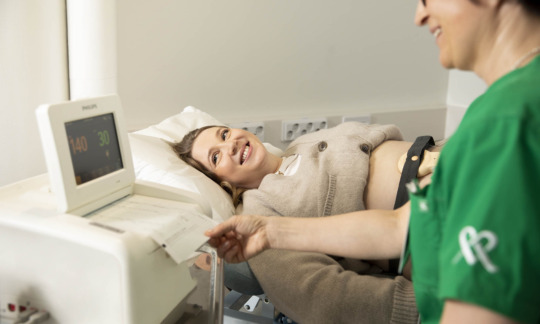Non-invasive prenatal test (NIPT)
NIPT (non-invasive prenatal testing) is a test used to screen for chromosomal abnormalities in the fetus. The test can be performed using a blood sample from the mother, as the placenta releases fetal DNA into the maternal bloodstream.
NIPT tests are available in different scopes. At Felicitas Mehiläinen we offer two levels of testing: a basic test and an extended test. The basic test screens for abnormalities in five chromosomes, while the extended version analyzes all chromosomes and the most common microdeletions.
As the NIPT test is performed by analysing the mother’s blood sample, it reduces the need for amniotic fluid and placental samples and the associated risk of miscarriage significantly. The test is also suitable as a more accurate and sensitive alternative to traditional screening or as an additional examination in the case of an abnormal screening or ultrasound examination result. A normal chromosome set does not guarantee the perfect health of the child, however. Expert advice before screening and chromosome examinations is very important.
You can book an appointment for NIPT screening by calling our customer service. If you wish, you can also leave us a contact request.
There are two types of NIPT screening tests available
Basic test
The basic test screens for aneuploidies (changes in the number of chromosomes) in five chromosomes. The test also includes fetal sex determination (optional).
The chromosomes analyzed are:
- Chromosome 13 (trisomy, Patau syndrome)
- Chromosome 18 (trisomy, Edwards syndrome)
- Chromosome 21 (trisomy, Down syndrome)
- Sex chromosomes X and Y
Comprehensive test
The comprehensive test screens for aneuploidies in all chromosomes, as well as structural chromosomal abnormalities. Structural chromosomal changes can include deletions, duplications, or other chromosomal rearrangements. This test enables the detection of common microdeletion syndromes. The test also includes fetal sex determination (optional).
The test includes:
- Analysis of all chromosomes
- Analysis of structural chromosomal abnormalities
- Detectable microdeletion syndromes include, for example, DiGeorge, Cri-Du-Cat, Prader-Willi, Angelman, 1P36, Wolf-Hirschhorn, Jacobsen, Langer-Giedion, and Smith-Magenis.
How do I get to the test?
Book an appointment with our perinatologist. At the appointment, you will receive more detailed information about the examination. Your doctor will also check the duration of the pregnancy and the well-being of the foetus with an ultrasound examination. The test is performed by taking a blood sample when the pregnancy has lasted at least 10 weeks.
If you wish, you can also leave us a contact request. you can also book an appointment for a NIPT test by calling a Felicitas Mehiläinen clinic. You can also leave us a contact request.
What kind of results can be expected from the test?
NIPT is a screening test, and although it is highly accurate, positive results are always confirmed with amniocentesis or chorionic villus sampling before any further actions are taken.
The reliability of the NIPT test for chromosomes 13, 18, and 21 is 99.9%, and for fetal sex determination, it is 100%. The sex of the fetus can be disclosed if desired. For sex chromosome abnormalities, the reliability is 90.5% for monosomy X (one chromosome instead of two), 100% for XXY, and 91.7% for XYY.

